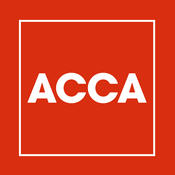Pass rates announced for ACCA’s first exam sitting for 2021

The Association of Chartered Certified Accountants (ACCA) has announced the pass rates of its latest exam sitting for March 2021.
In spite of the continued global disruption as a result of the COVID-19 pandemic, exam sittings were carried out in the vast majority of ACCA’s markets worldwide.
The results saw over 92,000 students around the world entering almost 112,000 exams. A total of 3,440 students completed their final exams to become ACCA affiliates, in addition to the 13,404 new affiliates created throughout 2020.
For the health and safety of our students, additional measures were implemented in line with relevant governmental advice. Again, ACCA implemented remote invigilation where local regulations did not permit in-centre exams, notably across the UK and Ireland, to enable many more students continue their ACCA journey despite the challenging conditions.
Alan Hatfield, ACCA executive director - strategy and development, said: “We are delighted with the results of this latest exam sitting, which saw 21,402 remotely invigilated exam entries across Applied Skills and Strategic Professional allowing many more students to progress than would otherwise have been possible.
“We are continuing to add in dedicated support at Strategic Professional, and starting to have a greater focus on Options exams, for which students have been supported in several ways including having access to a series of webinars and podcasts with expert tutors, highlighting important exam techniques and tips for success.
“Whilst COVID-19 continues to be the greatest challenge of our time, our students have made tremendous strides in their ACCA journeys in this latest exam session. The incredible support of all our Approved Learning Partners in assisting our students to achieve these results is hugely attributed to this success.
“As always, we also want to thank all our students for choosing to study with ACCA and reassure them that we’ll continue to help them progress by offering remotely invigilated exams where needed, as well as exams in centres where it is safe and appropriate to do so.”










